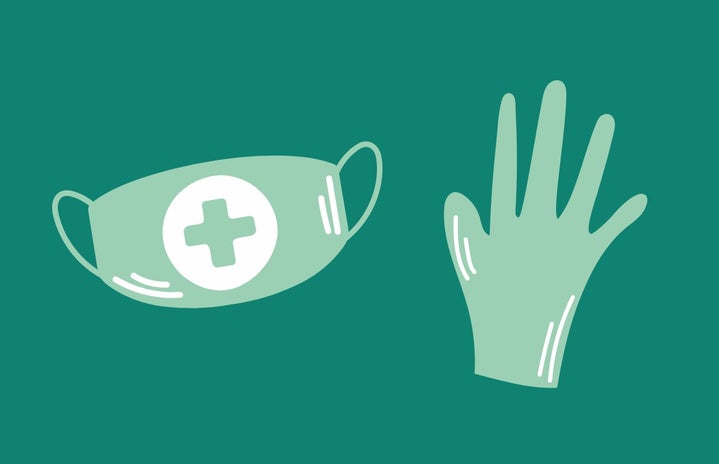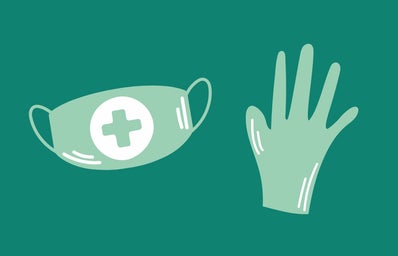Especially after COVID, it’s important to prioritize our health and general well-being while being at school and tackling exams. I had the chance to speak with Rachel Clarke, Student Health and Wellness Support member and the Senior Director, on some questions regarding the Student Health and Wellness Centre on campus. In this article, Rachel answers some important questions regarding the Student Health and Wellness Centre and provides insight into the resources offered on campus.
HC: What kind of staff work at the Student Health and Wellness Centre?
Clarke: If you need health information, assessment, or follow-up for a new or chronic physical or mental health problem and want to be treated confidentially by a qualified, inclusive, and respectful team, you can come and see us. You can consult the list of services offered by the centre by visiting the SERVICES section by accessing the web page here. If you’re unsure of which services to consult based on your condition and in which delays, please visit the “What is your level of urgency” page. We work in conjunction with the Health Sciences faculty (school placement requirements), health promotion services, case management services, and academic accommodations to meet your individual needs. We are committed to supporting you throughout your studies to promote your well-being and academic success.
HC: Why should I visit the Student Health and Wellness Centre?
Clarke: At the centre, you can meet with a multidisciplinary team of health professionals, including physicians (with mental health, women’s health, and skin specialties), nurse practitioners, registered nurses, health promotion specialists, psychotherapists, a psychologist and psychiatrist working together in a shared care model. You can consult their specific roles here.
HC: If I have opted out of the Health and Dental plan this semester, can I still access the student health and wellness centre?
Clarke: Yes. Since the Student Health and Wellness Centre is a primary health care centre, all students are covered through their provincial health insurance (OHIP, RAMQ, out-of-province) or UHIP for international and exchange students. Health and dental insurance usually covers paramedical services such as physiotherapy, vision, dental, prescription medication, massage, etc. For more information on how to navigate student health insurance, students can visit the Student Health Insurance web page. Students can also consult the Fees web page for a list of uninsured services. Should students have additional questions about their health insurance, they can visit the Health Promotion and Education office (A1) at the Student Health and Wellness Centre to speak with a Health Promotion Specialist.
HC: Are there sanitary napkins offered if I’m on my period?
Clarke: Yes. There are many programs on campus offering sanitary products to menstruating students. The Period Project allows menstruating students to obtain free products in a variety of locations on campus. Additionally, menstrual cups can be obtained, along with training on how to use them, in the following 2 locations: the Wellness Lounge (UCU203) and the Health Promotion and Education office (A1) at the Student Health and Wellness Centre. Students can visit the Sexual and Reproductive Health webpage for more information. Additionally, students can speak with a Health Promotion Specialist at the Student Health and Wellness Centre (office A1).
HC: What are some tips and advice you can offer students that are undergoing school stress?
Clarke: Stress shows up as an “adaptation response” to any new situation. We want you to know that we care for you and that we have many resources to support your well-being including individual therapy sessions, workshops on themes such as “Looking After your Mental Health and Well-Being” and “Stress Management” and individualized Education Plans filled with resources to help you cope with stress at school. Participating in activities and events can also help. Please visit our Wellness Lounge, in UCU 203, to chat with a peer who has experienced that same stress or visit our website to learn more.
HC: What should I bring to a visit with a doctor?
Clarke: To validate your identity, when you come to the health centre, you must bring your health insurance card (or its equivalent, like the UHIP electronic card) and your student card. Depending on the reason for your visit, you may also be asked to bring your medications (in the original bottles), any paperwork that needs to be filled out, and your childhood immunization record.
I would like to thank Rachel Clarke for taking the time to share their expert insights on health and wellness for students and Isabelle Mailloux-Pulkinghorn for helping coordinate this interview. I hope this Q&A can provide students with valuable information and a deeper understanding of prioritizing health and wellness during their time at school.


